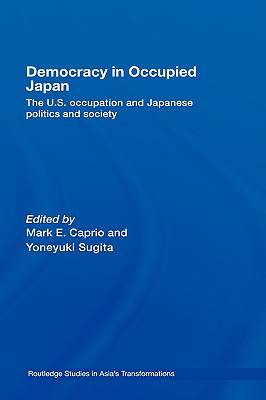
- Retrait gratuit dans votre magasin Club
- 7.000.000 titres dans notre catalogue
- Payer en toute sécurité
- Toujours un magasin près de chez vous
- Retrait gratuit dans votre magasin Club
- 7.000.0000 titres dans notre catalogue
- Payer en toute sécurité
- Toujours un magasin près de chez vous
Democracy in Occupied Japan
The U.S. Occupation and Japanese Politics and Society
Description
With expert contributions from both the US and Japan, this book examines the legacies of the US Occupation on Japanese politics and society, and discusses the long-term impact of the Occupation on contemporary Japan. Focusing on two central themes - democracy and the interplay of US-initiated reforms and Japan's endogenous drive for democratization and social justice - the contributors address key questions:
- How did the US authorities and the Japanese people define democracy?
- To what extent did America impose their notions of democracy on Japan?
- How far did the Japanese pursue impulses toward reform, rooted in their own history and values?
- Which reforms were readily accepted and internalized, and which were ultimately subverted by the Japanese as impositions from outside?
These questions are tackled by exploring the dynamics of the reform process from the three perspectives of innovation, continuity and compromise, specifically determining the effect that this period made to Japanese social, economic, and political understanding. Critically examines previously unexplored issues that influenced postwar Japan such as the effect of labour and healthcare legislation, textbook revision, and minority policy. Illuminating contemporary Japan, its achievements, its potential and its quandaries, this book will appeal to students and scholars of Japanese-US relations, Japanese history and Japanese politics.
Spécifications
Parties prenantes
- Editeur:
Contenu
- Nombre de pages :
- 262
- Langue:
- Anglais
- Collection :
Caractéristiques
- EAN:
- 9780415415897
- Date de parution :
- 02-02-07
- Format:
- Livre relié
- Format numérique:
- Genaaid
- Dimensions :
- 168 mm x 239 mm
- Poids :
- 530 g

Les avis
Nous publions uniquement les avis qui respectent les conditions requises. Consultez nos conditions pour les avis.





